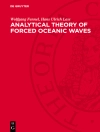Mountainous regions are vitally important ecosystems. They are an important storage of fresh water and energy, a rich source of biodiversity and a significant provider of food for the people living there. They are ecologically highly variable, complex and vulnerable and ethnically, socio-culturally and economically extremely heterogeneous. At the same time they are under severe and increasing pressures caused by higher population growth, inmigration, resource exploitation and rising demands and expectations. They also account for a major share of poverty and food insecurity in rural areas. Given their importance, complexity and vulnerability mountainous regions pose a demanding and new challenge for agricultural research, particularly for research that is addressing environmental sustainability, poverty and food insecurity. The University of Hohenheim’s long-term research program “Sustainable Land Use and Rural Development in Mountainous Regions of Southeast Asia” (Sonderforschungsbereich (SFB) 564 der Deutschen Forschungsgemeinschaft, also known as “The Uplands Program”) is taking on that challenge. It is an integrated interdisciplinary research program where sustainable innovations for agricultural production systems, combining fruit trees, crops, livestock and aquacultural production in their interaction with soil, water and agrochemical use are analysed, as well as their impact on landscape diversity and population dynamics of pests and beneficial insects. Further along the value added chain of agricultural production, potentials of product conservation, processing and marketing are studied.
Daftar Isi
Sustainable Resource Management in the Highlands.- Variability of Soil Resources in Northern Thailand.- Water Allocation and Management in Northern Thailand: The Case of Mae Sa Watershed.- The Environmental Fate of Agro-Chemicals: A Case Study in the Mae Sa Noi Watershed.- Biodiversity and Landscape Structure: Challenges for Insect Management Strategies in Lychee Orchards in the Mountains of Northern Thailand.- Synthesis: Constraints to Sustainable Use of Soil and Water in the Northern Thailand Highlands and Consequences for Future Research.- Sustainable Fruit Production and Processing Systems.- Stabilisation of Fruit Production by Optimised Plant Nutrition.- Strategies for Flower Induction to Improve Orchard Productivity: From Compensation of Alternate Bearing to Off-Season Fruit Production.- The Plant-Physiological Basis of Flower Induction in the Control of Fruit Production.- Alternative Techniques for Water-Saving Irrigation and Optimised Fertigation in Fruit Production in Northern Thailand.- The Control of Postharvest Ripening Processes and its Implications for the Productivity of Mango Processing.- Innovative Strategies for Sustainable Lychee Processing.- Synthesis: Food Safety, Productivity and Environmental Awareness as Key Objectives in Sustainable Fruit Production and Processing Systems.- Livestock Production Systems.- The Contribution of Livestock to Sustainable Development of Mountain Farming in Northern Vietnam.- Suitability of Local and Improved Pig Breeds for Different Smallholder Production Conditions.- Local Livestock Genetic Resources in Northern Vietnam.- Genetic Diversity of Vietnamese Pig Breeds.- A Survey of Selected Livestock Parasites in Son La.- Synthesis.- Farm Economics and Marketing Dynamics in Support of Sustainability.- The Impact of Family Decision-Making on Sustainable Rural Livelihoods.- Sustainability of Mountainous Farming Systems.- Sustainable Farming Systems Planning Using Goal Programming in Northern Thailand.- Fresh Longan Marketing and Reference Market: A Case of Longan Grown in Northern Thailand.- Interregional Trade Flows and Market Stability.- Synthesis.- Institutional Framework for Sustainable Land Use.- Resource Tenure and Sustainable Land Management — Case Studies from Northern Vietnam and Northern Thailand.- Sustainable and Less Sustainable Developments in the Rural Financial Market of Northern Vietnam.- Participatory Research for Sustainable Development in Vietnam and Thailand: From a Static to an Evolving Concept.- State Administration and Local Networks: The Case of Pang Ma Pha District, Northern Thailand.- Synthesis, Conclusions and Implications for Institutional Development and Future Research.- Conclusion and Outlook.- Conclusions and Outlook.
Tentang Penulis
The SFB 564 ‘Research for Sustainable Land Use and Rural Development in Mountainous Regions of Southeast Asia” (also known as ‘The Uplands Program”) is a long-term collaborative research program, cooperating with 9 universities and research institutes from Thailand, Vietnam and Germany. The objectives of The Uplands Program are (i) to create the scientific base for developing and testing sustainable production and land use systems with increased productivity in ecologically fragile and economically disadvantaged mountainous regions in Southeast Asia; (ii) to develop concepts for rural institutions that can contribute to a sustainable reduction of rural poverty and food insecurity, and (iii) to advance methods for analyzing complex ecosystems and their interactions with the socio-cultural, economic and institutional environment. The research activities integrate the priorities of stakeholders involved in the management of natural resources and in rural development processes. Participation, sustainability and interdisciplinarity are central components in The Uplands Program












